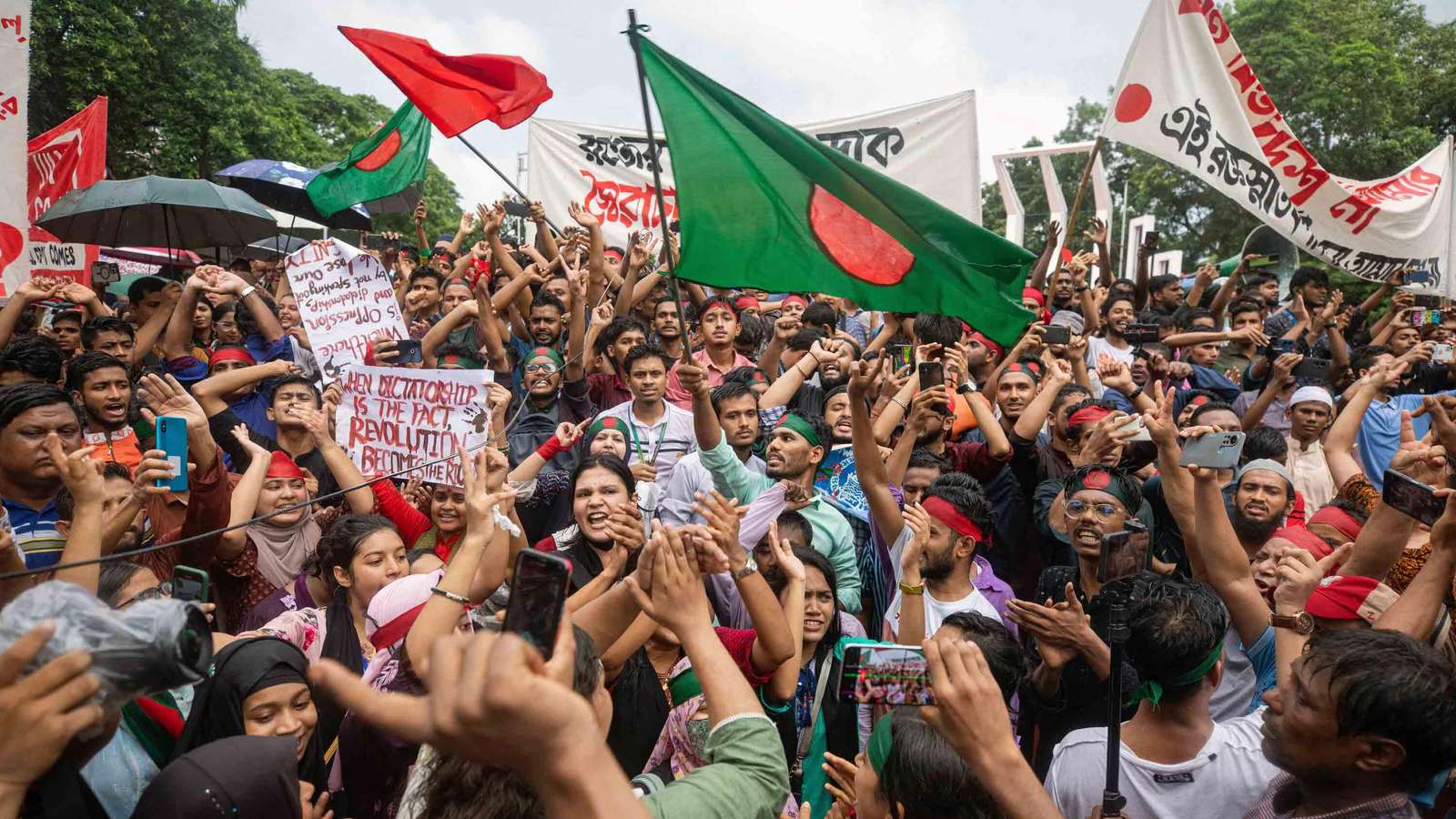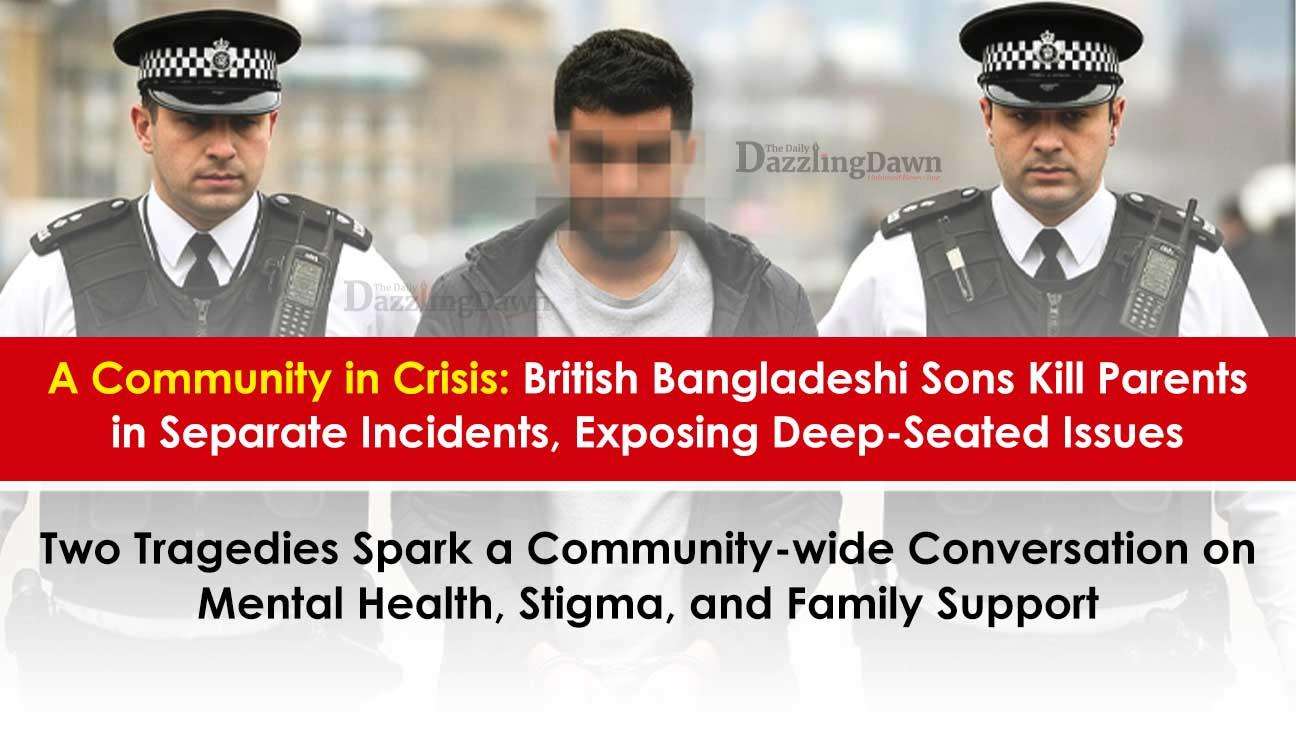The British Bangladeshi community is confronting a profound sense of shock and sorrow following two separate, tragic incidents where sons allegedly murdered their own parents. In less than a month, a mother was stabbed to death by her son in Bow, Tower Hamlets, and a father was fatally stabbed by his son in Cardiff. Both families, with roots in the Sylhet division of Bangladesh, are now at the center of a painful public conversation about mental health, family dynamics, and the strain on traditional values, as reported by the Daily Dazzling Dawn.
The first incident, which unfolded on June 26, saw a mother in her late 40s killed in her own home. Her son, Layek Miah, 27, has since been charged with her murder. The community, already reeling from a separate case where a brother was killed by his own sibling in the same borough, is struggling to comprehend the violence. As the Daily Dazzling Dawn has learned, the victim's husband, a regular worshipper at a local mosque, discovered the horrific scene upon returning home from evening prayers. Neighbors described the deceased as a kind and family-oriented woman. The motive for the attack is still under investigation, with speculation centering on a family dispute, though it is not yet confirmed whether drug abuse was a factor.
Read Also: Bangladeshi Mother Killed by Son in East London
Less than a month later, another family was torn apart in Cardiff. Ataur Rahman (Bilat Mia), a cherished businessman, was allegedly killed in his sleep by his 38-year-old eldest son, Saifur Rahman. Eyewitnesses paint a grim picture of multiple stab wounds. Family members and neighbors confirmed that Saifur had been battling severe mental illness for two decades. His devoted father, Ataur, had been a constant source of support, even bringing his son back home just days before the tragedy. The family had already endured immense heartache after Saifur's mother passed away from cancer a year prior. It is still unconfirmed if drug use played a role in the incident.
These twin tragedies are a stark reflection of deep-seated issues that are often hidden from public view. While the specific legal proceedings for both cases are ongoing, the available information points to significant underlying problems. The Cardiff case clearly involves long-standing and severe mental illness, while the Bow incident raises questions about the confluence of family disputes, mental health, and substance abuse.
Read More: Cardiff Tragedy: Slain Bangladeshi Father Awaits Rest, Son Hospitalized
This pattern of violence, as this special report from Daily Dazzling Dawn highlights, is not unique to a single community. Across the UK, similar devastating cases have occurred in various ethnic groups, with mental illness and drug use frequently cited as key factors. A 2021 study by the University of Manchester, for instance, found that while parricide is a rare crime, a significant number of perpetrators have a history of mental health problems, such as schizophrenia, or a history of substance abuse. The study highlighted that these issues are not confined to any specific racial or ethnic group. For example, a 2023 case saw a white British man jailed for the murder of his mother, while a 2022 case involving a son from a Black Caribbean background who killed his mother was linked to severe paranoid schizophrenia.
These tragic events have also brought renewed focus on the sensitive issue of domestic violence within the British Bangladeshi community. Domestic abuse is a significant issue that is often underreported due to cultural stigma, a fear of bringing shame to the family, and language barriers. While official statistics from the Office for National Statistics (ONS) do not provide specific data for the British Bangladeshi community alone, they indicate that women from some Asian ethnic groups can be disproportionately affected by certain forms of domestic abuse. Reports from charities like Imkaan further highlight the unique challenges faced by Black and minoritized women in accessing culturally competent support services.
The deaths of Ataur Rahman and the mother in Bow are more than just isolated incidents; they are a desperate call to action. The British Bangladeshi community, its families, and its religious institutions must come together to address these issues head-on.
It is crucial to destigmatize mental health. Mosques and community leaders must use their platforms to talk openly about mental illness, emphasizing that seeking professional help is a responsible and necessary step. Community organizations should create culturally sensitive workshops and support groups to help families recognize the signs of mental health crises and substance abuse.
Strengthening family bonds is another vital step. The community needs to foster open communication and provide safe spaces for young people to discuss their struggles without fear of judgment. Domestic violence must be openly condemned, with clear pathways for victims to seek help. Mosques can serve as crucial referral points, linking victims to specialist support services. Finally, the community must work together to raise awareness about drug addiction, providing non-judgmental support to those who need it.
This is a time for introspection, dialogue, and a unified effort to ensure that such unimaginable loss is not repeated. By confronting these difficult issues head-on, the community can begin to heal and build a more resilient, supportive future.

.jpg)






.svg)

_1.jpg)